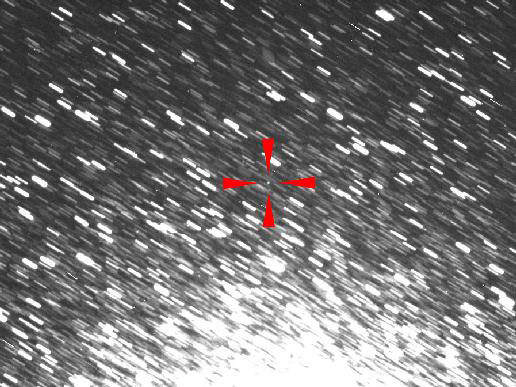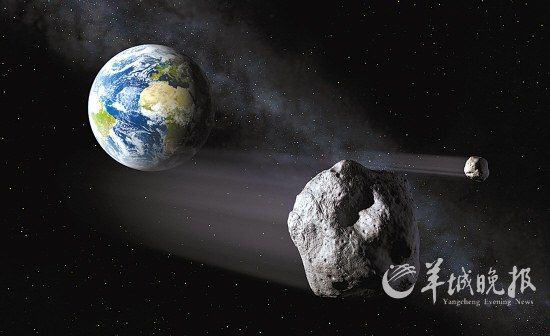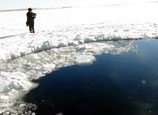
 |
| This image from D. Herald of Murrumbateman, Australia, shows the asteroid 2012 DA14 as a tiny speck in the center of the field of view. It was taken just past midnight on Feb. 13, 2013 in Australia as it headed towards its closest approach to Earth on Feb. 15. (Photo/NASA) |
A number of asteroids have flown by Earth in recent days, but astronomers say it’s unlikely to see devastating asteroid impact on Earth at least in the next 100 years.
Scientists have found 1,345 potentially Earth-threatening asteroids with a diameter of at least 140 meters and whose closest distance from Earth is less than 7 million kilometers, or 18.5 times the average Earth-moon distance, said Li Chunlai, a researcher at the Center of Lunar and Deep Space Explorations under China's National Astronomical Observatories.
"But we do not need to worry about it. Astronomers have collected accurate information about the orbits of these potentially Earth-threatening asteroids. We are unlikely to see devastating asteroid impact at least in the next 100 years," Li said.
"All areas on Earth are equally possible to be hit by an asteroid. Oceans cover about 70 percent of Earth’s surface, and most of the land is uninhabited. This has greatly reduced the possibility of an asteroid hitting inhabited areas,” Li said. 
"An asteroid impact may injure people mainly through the shock wave that is formed while the object falls off," Li said. Before the asteroid hits the ground, the shock wave shows its power and shatters the windows of buildings.
Lin Yangting, a researcher at the Institute of Geology and Geophysics under the Chinese Academy of Sciences, said that more than 1,000 people were injured during a recent meteor event in Russia, and their injuries were mainly caused by collapsed buildings and broken window glass shattered by the shock wave.
"Some people are worried that the meteoroid may also cause injuries through radiation. In fact, asteroids and meteoroids contain few radioactive substances, and they usually burst dozens of kilometers above the ground, so their radiation is negligible," Lin said.
Wang Sichao, a researcher at the Purple Mountain Observatory under the Chinese Academy of Sciences, said that a large asteroid is unlikely to hit Earth without being noticed by astronomers beforehand.
An explosive device sent to a potentially Earth-threatening asteroid by spacecraft several years in advance can change the speed and direction of the asteroid through explosion. It may have only a little impact on the orbit of the asteroid, but several years later, it will move far away from Earth and pose no threat to mankind.
Important astronomical events in 2013
First, China will launch its “Zhonghua” lunar rover to land on the moon in the second half of the year.
Second, the United States’ Mars rover Curiosity is likely to make breakthroughs in its search for environments that could host alien life this year after it landed on the red planet in 2012.
Third, solar activity will peak this year, and a possible solar storm may affect shortwave communications on Earth and astronauts’ extravehicular activity.
Fourth, comet Ison will pass closest to Earth at the end of the year, which may happen only once in 100 years. However, this event is still full of uncertainty.
















 Auto-chat app sparks social skills concern: A littile yellow chicken can talk, really?
Auto-chat app sparks social skills concern: A littile yellow chicken can talk, really?


![]()
